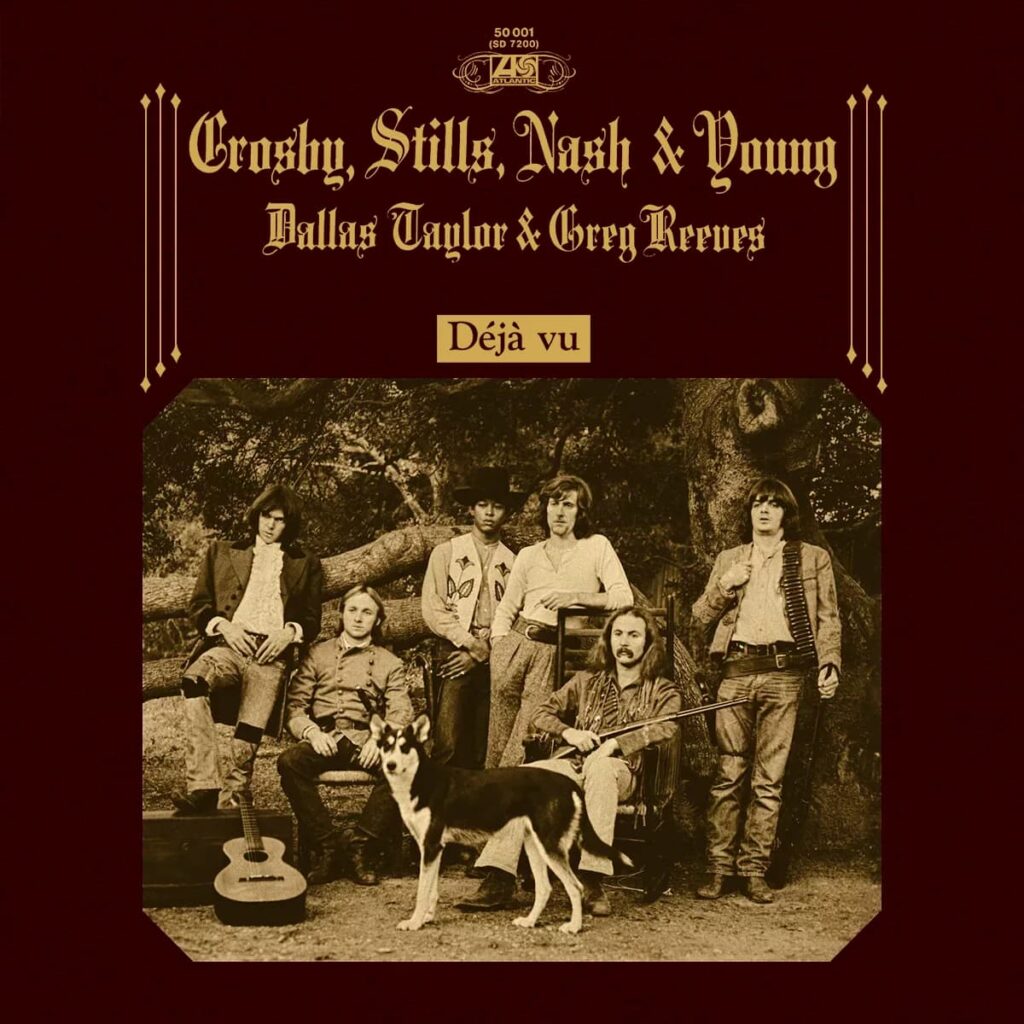
The Haunting Echoes of Love’s Familiar Return: Crosby, Stills, Nash & Young’s “Déjà Vu”
Some songs don’t just occupy a space on the radio waves; they inhabit a corner of our collective memory, a feeling of having experienced something profound before, even if we can’t quite place the exact moment. For many of us who lived through the tumultuous and transformative late 1960s and early 1970s, Crosby, Stills, Nash & Young’s “Déjà Vu” is one such indelible mark. It’s more than a melody; it’s a swirling tapestry of intricate harmonies, poignant lyrics, and an almost mystical sense of recognition – a feeling that what is happening now has, in some essential way, happened before.
Released in 1970 as the title track from their second album, “Déjà Vu,” the song captured a moment of both profound collaboration and simmering tension within one of rock’s most iconic supergroups. This album, a follow-up to their highly successful debut, marked the official arrival of Neil Young as a full member of the group, cementing the quartet as Crosby, Stills, Nash & Young. The addition of Young’s distinct voice, songwriting prowess, and electric guitar added a new dimension to their already rich folk-rock sound. “Déjà Vu” itself, while not released as a single, became an instant classic, an album-oriented rock staple that resonated deeply with listeners. The “Déjà Vu” album itself was a colossal success, topping the Billboard 200 album chart for a remarkable three weeks and ultimately selling over 8 million copies in the United States, showcasing the immense popularity and cultural impact of the band at their peak. Its enduring presence on classic rock radio stations over the decades only underscores its status as a timeless piece of music.
The genesis of “Déjà Vu” is as intriguing as the song itself. Written by David Crosby, it reportedly came to him during an experience at a house he was staying in in Marin County, California. He described a feeling of having been there before, a sense of uncanny familiarity that transcended mere memory. This ethereal sensation became the core of the song’s lyrical theme: the bewildering yet strangely comforting realization that a new love or a new experience feels deeply familiar, as if it were a continuation of something already lived. “I’ve seen that face before, I’m sure we’re old friends / Did we ever meet, or is this just the end?” These lines perfectly encapsulate that disorienting yet intimate connection.
But “Déjà Vu” is more than just a lyrical concept; it’s a masterclass in musical craftsmanship. The song’s complex structure, with its shifting time signatures and intricate vocal arrangements, perfectly mirrors the elusive nature of its subject matter. The interplay of Crosby’s haunting lead vocal, Stephen Stills’ masterful guitar work, Graham Nash’s melodic contributions, and Neil Young’s subtle yet powerful additions, creates a sound that is both sophisticated and deeply emotional. It’s a testament to the individual talents of the four musicians, as well as their unparalleled ability to weave their voices together into something truly magical. The song’s production, helmed by the band members themselves with the assistance of Bill Halverson, further elevates its dreamlike quality, pulling the listener into its introspective world.
For those of us who recall the turbulent era of the Vietnam War, social upheaval, and burgeoning counter-culture, “Déjà Vu” offered a moment of introspection amidst the chaos. It spoke to the cyclical nature of life, love, and loss, suggesting that even in new beginnings, there are echoes of the past. It’s a song that invites quiet contemplation, perhaps about past relationships that resurface in unexpected ways, or the feeling that certain life paths were always destined to be walked. It reminds us that our personal histories, like a recurring dream, often reappear in the present, shaping our perceptions and experiences in ways we may not always fully grasp. The very act of listening to it now, for many of us, evokes a sense of “déjà vu” itself, bringing back memories of a time when this music was the soundtrack to our lives, a comforting echo from a vibrant and unforgettable past.